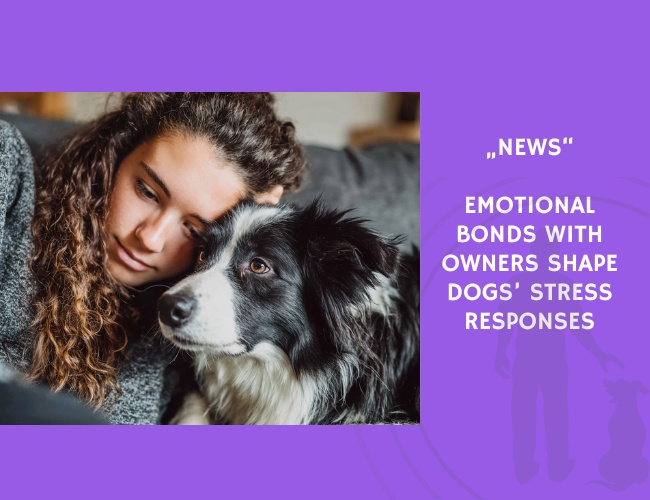In a comprehensive 2022 study, Sanni Somppi and colleagues examined how dogs’ emotional reactivity is influenced by their relationship with their owners, dog personality traits, and how owners interpret emotional signals. The study used both physiological and behavioral measures to assess how 29 adult dogs responded to five emotionally charged situations: stroking, a feeding toy, separation from and reunion with the owner, and the sudden appearance of a novel object.
Emotional reactivity was measured through **heart rate variability (HRV)**, behavioral indicators, and physical activity. Owner interpretations were also recorded, especially for perceived emotional **valence** (positive or negative) and **arousal** (intensity).
The findings showed that both positive and negative events provoked elevated arousal in dogs. During negative situations, dogs exhibited lower HRV, increased physical activity, and more behavioral signs of stress. Owners tended to notice these cues accurately, especially in fear-inducing scenarios. However, the owners’ interpretations of emotional valence and arousal were not influenced by their emotional relationship with the dog.
Still, the nature of the dog–owner bond influenced dogs’ emotional responses. Dogs with high Emotional Closeness scores on the Monash Dog–Owner Relationship Scale (MDORS) showed increased HRV, suggesting reduced stress reactivity and a strong “secure base” effect. In contrast, dogs with high scores in the Shared Activities factor showed more owner-directed behaviors and a trend toward lower HRV, indicating elevated emotional arousal tied to attachment.
Interestingly, owners who perceived their dogs as costly (high Perceived Costs scores) had dogs with higher HRV, fewer fear behaviors, and less owner-directed responses—traits associated with more independent personalities. These results suggest a nuanced interplay where caregiving behavior, emotional bonding, and personality traits co-modulate dogs’ stress and coping mechanisms.
This study underscores the complex dynamics of human–dog emotional relationships. Dogs are not just passively reacting to their environments—they are influenced by how emotionally close they are to their guardians, how often they engage in shared activities, and how their personalities interact with these factors. The findings point to the importance of individualized care and understanding in strengthening dog welfare and emotional resilience.
Source: Sanni Somppi, Heli Törnqvist, Aino Koskela, Antti Vehkaoja, Katriina Tiira, Heljä Väätäjä, Vassilis Surakka, Outi Vainio, and Miiamaaria V. Kujala. 2022-05-24. “Dog–Owner Relationship, Owner Interpretations and Dog Personality Are Connected with the Emotional Reactivity of Dogs.” Animals, 12. https://doi.org/10.3390/ani12070802










